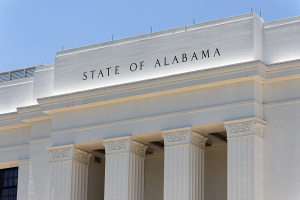Iowa Gay Marriage Ruling Spurs Calls for Marriage Amendment
Iowa pro-family groups are moving swiftly to respond to the state Supreme Court's same-sex marriage ruling, urging legislative action that would put the issue before voters as early as 2011.
On Friday, the Court overturned the 1998 Defense of Marriage Act(DOMA), which effectively banned gay marriages in the state. The Court upheld a lower court's decision in August 2007 that ruled Iowa's DOMA, which defined marriage as a union between one man and one woman, as unconstitutional.
"This case proves once again that the only way to assure that the institution of marriage is protected in Iowa is to pass a constitutional marriage amendment," said Tamara Scott, Iowa state director of Concerned Women for America. "Iowans need to look to the people of California for encouragement and begin working today to pass an amendment by asking our legislators to allow us a vote on an amendment."
A coalition of Iowa pro-family groups that pushed last year for the passage of the state marriage amendment in Congress at letusvoteiowa.org has renewed its call for a vote on the issue.
In a recent update on the Web site, the coalition, which includes Concerned Women for America, Iowa Eagle Forum, Iowa Christian Alliance and Iowa Family Policy Center, said the Iowa Supreme Court overstepped its judicial authority by striking down state marriage laws.
"This decision isn't only about 'moral issues'- this is a breach of the constitutional separation of powers," the groups stated. "The Iowa Supreme Court has attempted to make law - which is NOT the role of the judicial branch."
Since Iowa is not a referendum state, the State Legislature must pass the marriage amendment during two consecutive General Assemblies before the issue could appear before voters. If the House and Senate approves the legislation during the 2009 session, citizens could vote on the marriage amendment as early as 2011. Otherwise, the next possible opportunity for a ballot vote would not come until at least 2013.
Iowa pro-family groups have urged supporters to ask legislators to allow a vote on the issue, even if a special legislative session is required.
Supporters of a constitutional marriage amendment say it would fortify the institution of marriage against future legal challenges.
"That's the only sure way to protect the institution of marriage from radical social engineering by state judges," said Tony Perkins of the Washington D.C.-based Family Research Council.
A November 2008 poll by the University of Wisconsin showed that 28 percent of Iowans support same-sex marriage but found that the Iowa Supreme Court ruling sanctioning gay marriages would increase that figure by 7 percentage points. The poll also found that 30 percent oppose same-sex marriage but support civil unions, 32 percent oppose both civil unions and same-sex marriage, and 10 percent are undecided.
On Monday, two lesbians became the first same-sex couple to apply for a marriage license following Iowa's same-sex marriage ruling.
Scott County Recorder Rita Vargas told the Quad-City Times that she thinks many couples are probably waiting until April 24, when the ruling is expected to take effect.
The Iowa Attorney General's office issued an e-mail late Friday that says same-sex couples can begin applying for a marriage license starting Monday, but it can't be picked up until April 24.
Groups supporting traditional marriage say they expect the Iowa ruling to prompt other states to seek constitutional marriage amendments.
"This (ruling) will catapult all of those states forward in the marriage amendment process," said Douglas Napier, senior legal counsel for the Alliance Defense Fund, a Christian legal group, according to the Associated Press.
"I think they're going to work hard to get it on their constitution before another renegade court goes out and creates new law," he told AP.
Currently, twenty-nine states already have constitutional amendments defining marriage as between a man and a woman.
Iowa is the third state to allow same-sex marriage, joining Massachusetts and Connecticut.





























